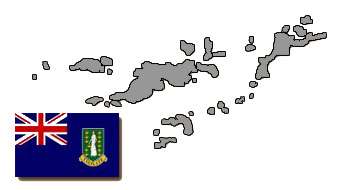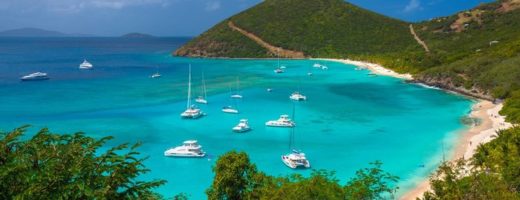The British Virgin Islands and the US Virgin Islands are among the more gay welcoming islands in the Caribbean, but are not without resistance and secret lives. For the most part they lack the conflict and drama found on other islands which discriminate or criminalize same-sex activity. Throughout most Caribbean islands, even though homosexuality is legal, there are varying degrees of native Afro-Caribbean homophobia which can make life uncomfortable for LGBT citizens and LGBT tourists. However, most of it is silent and invisible and most tourists–gay or not–will hardly notice.
British Virgin Islands is an overseas territory of the United Kingdom consising of the main islands of Tortola, Virgin Gorda, Anegada and Jost Van Dyke, along with over fifty other smaller islands and cays. In 2000 Britain unilaterally scrapped anti-gay laws in its five Caribbean territories after years of trying to cajole the territories — Anguilla, the Cayman Islands, the British Virgin islands, Montserrat and the Turks and Caicos — into changing the anti-gay laws themselves. But facing opposition from residents of the islands, the British government decided to go ahead and make the change itself, officials say. The old laws in question made homosexual intercourse illegal, and the punishments varied from territory to territory. The laws were rarely enforced. Britain’s government said the anti-gay laws violate international human rights agreements it has signed. Islanders, though, saw the matter differently: Many here said homosexuality is immoral and goes against the grain of their culture and religions. "Because of our deeply religious people, we cannot simply stand up and propose a law in the assembly to legalize homosexuality," a former Minister said. Nevertheless, the force of modern times overruled old traditions and the new laws were imposed by London decriminalizing homosexuality. It was made legal in England in 1967.


